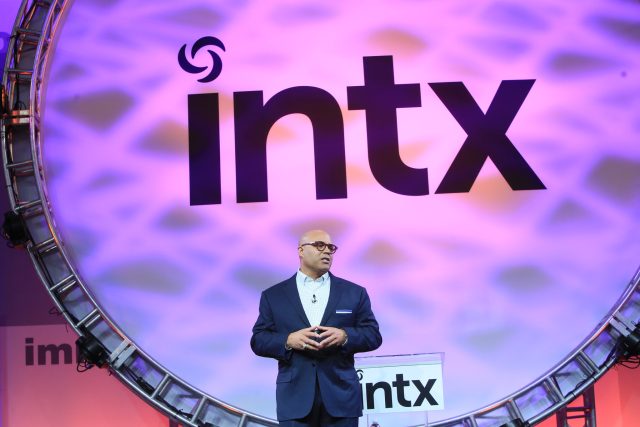
The cable industry's chief lobbyist today criticized what he called the Federal Communications Commission's "relentless regulatory assault" on the industry, claiming it has been unprovoked by the cable companies themselves.
"What has been so distressing is that much of this regulatory ordinance has been launched without provocation," said Michael Powell, CEO of the National Cable & Telecommunications Association (NCTA). "We increasingly are saddled with heavy rules without any compelling evidence of harm to consumers or competitors." The FCC's recent actions have not been "modest regulatory corrections," he said. Instead, "they have been thundering, tectonic shifts that have crumbled decades of settled law and policy."
Powell, who was FCC chairman himself from 2001 to 2005, made his comments today in a keynote speech at the NCTA's annual conference in Boston. Four FCC commissioners are scheduled to speak at the conference tomorrow, and FCC Chairman Tom Wheeler will do so on Wednesday. Wheeler—who was CEO of the NCTA from 1979 to 1984—has been critical of the industry in speeches at the conference in each of the last two years, and he would likely disagree with Powell's assertion that cable companies haven't harmed consumers or competitors.
Powell claimed that "our property [is] being confiscated and passed off to new competitors to give them a leg up, despite healthy and robust markets." This was a reference to Wheeler's plan to make it easier for consumers to watch cable TV channels without renting set-top boxes from cable providers. The FCC proposal would force pay-TV providers to create a software-based replacement for CableCard, letting makers of third-party applications and devices display the TV channels customers are subscribed to.
Powell also complained that the cable industry has been "marked for rate regulation." While the FCC doesn't impose utility-style rate regulation on home Internet or TV service, the FCC has proposed new price rules that affect certain types of business data services offered by cable companies. On the other hand, the commission is helping cable TV providers avoid rate regulation at the municipal level.
Wheeler argues that consumers have been harmed by the lack of competition in the set-top box market, as 99 percent of customers still rent cable boxes directly from their providers and generally pay a high price. He has also pointed to customer harm to support other initiatives. For example, a lack of competition that drives up prices and restricts Internet access was cited to support an order that overturned municipal broadband restrictions that help cable companies avoid competition.
At last year's NCTA conference, Wheeler urged cable companies to compete against each other. The current practice of cable companies avoiding each other's geographic territory means there hasn't been the kind of "intense and constant pressure to continue to improve" that was seen years ago when DSL posed a serious threat to cable, Wheeler said at the time.
In today's speech, Powell said cable companies face lots of video competition, though presumably he meant from online video providers rather than from other cable companies. Online video providers argue that cable companies are trying to stifle competition from online video by imposing data caps—Wheeler is examining those caps and related "zero-rating" practices in which some content doesn't count against the limits, but he hasn't proposed any action yet.
Powell repeated one of the cable industry's most frequent complaints, that network operators face stricter regulations than the companies that offer services over the network, like Google and Netflix. "Internet companies are nurtured and allowed to roam free, but network providers are disparagingly labeled 'gatekeepers' that should be shackled," Powell said.
Cable companies hope Wheeler will ease up on them in what is likely his final full year as FCC chairman.
"Networks must continue to innovate, experiment, and thrive in order to fuel the Internet growth we all want to see," Powell said. "It is a mistake to view network providers as an impediment to that growth, rather than a valued ingredient of it."
reader comments
138